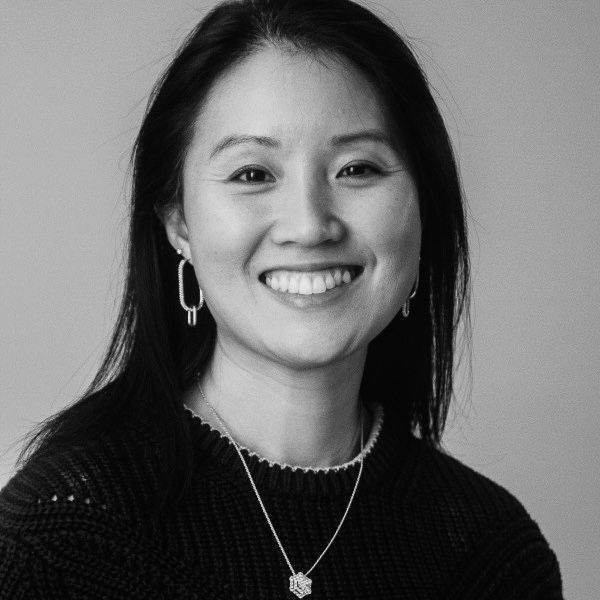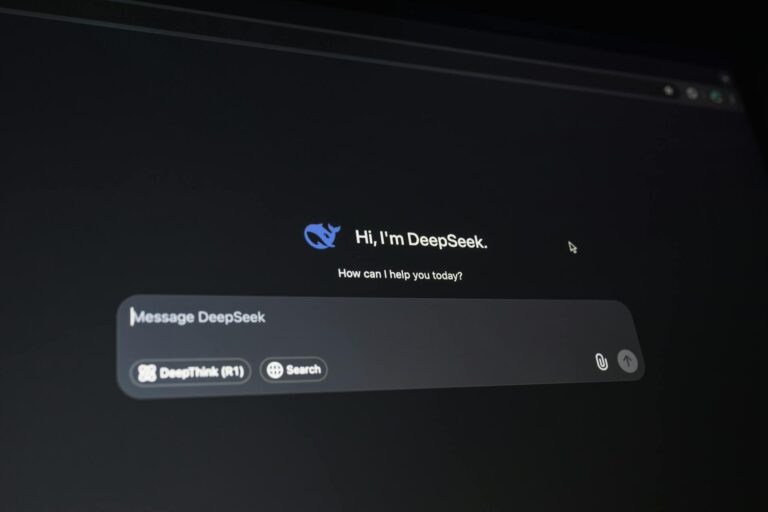
Lindsay Hua wears two hats: diversity champion and deployer of AI. At the intersection of the two we find a special perspective on the importance of both to global AI companies like her employer, Afiniti, and their customers.
When the “Godfather of AI”, Geoffrey Hinton, quit Google citing concerns about the direction of digital intelligence, he once again opened up the debate everyone from Elon Musk to Joe Biden has been having about the regulation of this potentially life-changing technology. Governments across the world have proposed frameworks, but largely it’s been left up to the companies to self-police. Google itself has its AI Principles, though Hinton seems to think they’re no longer fit for purpose.
So you might expect a global AI and machine-learning software company such as Afiniti to brush some of these issues under the carpet. But Lindsay Hua, VP Global Deployment, is keen to confront them head on.
“AI is obviously a hot topic,” she admits. “Any idea of Terminator-style cyborgs taking over the planet is a little bit extreme, but at Afiniti it was really key to us to have some policies that could underpin our products. So we created an AI ethics and governance committee to make sure all the products we create have no bias against race, ethnicity or gender. After all, AI is initially created by us, so if we have bias, so could AI.”
It makes sense for Afiniti to be so invested in the human impact of AI, given it’s the bedrock of the company’s entire proposition. Installed into a contact centre, its technology connects agents and customers based on data and machine-learned best fit, rather than call order and availability. That means both parties enjoy more fruitful conversations, leading to better outcomes for customers and companies.
It was really key to us to have policies that could underpin our products. So we created an AI ethics and governance committee to make sure all the products we create have no bias
“It is about applying AI to improve human interaction rather than replacing it,” says Hua. “That’s the core of our product.”
Which is a world away from the dangers of AI chatbots Hinton has been warning about. As Global Deployment Lead for Afiniti’s implementation programme, for Hua it’s never been a case of just installing technology and waiting for results. Her cross functional team of data scientists, engineers and developers sit down with interested customers to listen and truly understand the requirements of the company before implementation. Then, once it’s live, there’s a very human management and maintenance of the system.
“There are so many questions we get about data, AI, how our software can integrate with their other systems, how we can help with their digital transformation programmes,” says Hua. “And untangling that spaghetti while offering value and security can only really come with human collaboration and interaction. Being in 20 locations around the world and constantly having these conversations eases these concerns. We are an AI company, but human interaction is the end game.”

That focus on humanity also plays a huge part in Hua’s other role with Afiniti, as Head of Diversity in Technology. When she first joined from T-Mobile in 2020, she was one of just two women VPs in the global deployment team.
“I made it a personal mission to bring in more women, not just in global deployment but across Afiniti,” she says.
And that mission began by introducing Afiniti to non-profit organisation IGNITE Worldwide, which focuses on bringing STEM awareness and education to young girls and gender diverse youth. IGNITE’s mission statement is in its name (Inspiring Girls Now in Technology Evolution) – and since 1999 it has inspired over 80,000 young women in Seattle alone to pursue education or careers in science, technology, engineering and mathematics. There are now chapters all over the world, and as a member of IGNITE’s Executive Advisory Board, Hua is evangelical about what it means for the future of women in tech.
“At Afiniti, we do a lot of volunteering to teach these kids the basics in AI and machine learning, data design and even product creation, because we know that in the end they are going to be our future pipeline and our future talent.
“It’s fun and interactive, and we either go to their schools or get them to come to our offices so they can see women in these tech roles and have role models they can aspire to.”
That sense of being seen or represented feels very important. Earlier in her career, Hua says there was a real block to the idea of progressing to leadership levels as a woman in tech.
“I was looking for role models and all the leadership were men,” she says. “It did provoke questions about how I would go up the ranks, how I’d get a mentor, a sponsor, an advocate who would vouch for me and see my talent.”
And how does that landscape look now?
“There’s still a way to go, absolutely. For example, when you see one woman in a leadership group of ten, you have to ask why that is happening. And if you look at the promotion progression for people of the same skill level and certain groups are getting promoted over others, it’s possible that’s due to unintentional bias. It’s critical to educate people to overcome this kind of bias or at least be aware of it, so you can bring more equality to the workplace.”
At Afiniti, we do a lot of volunteering to teach kids the basics in AI and machine learning, data design and even product creation because we know that in the end, they are going to be our future pipeline and our future talent
Hua’s also found huge support with her mission to drive diversity in her membership of WomenTech Network – a group of powerful and influential women in the tech industry who work together to create change – and Chief, a similar network built to drive more women into positions of power.
“They’ve been so beneficial,” she says. “They’re full of women who look like me, speak my language, and when I have an issue or challenge that I want to overcome and can’t find a solution internally, they are like your board of advisors. They provide coaching and mentoring at that level.
“Many will use Chief for job postings and applications of course, but there’s a wider support at play here, too. Chief provides a platform for people like me to speak to other women executives and understand how they’ve navigated similar challenges over their careers. It’s been incredibly helpful.”
It’s fascinating how two huge strategic goals in all companies – embracing AI and driving diversity, inclusion and equality in the workplace – come together in Hua’s roles. She has, then, both a lot to do and a lot to be hopeful about.
“Most days now I’m really excited about women in tech and increasing diversity,” she says. “Yes, it’s a space that requires a lot of attention. Yes, there’s a long way to go, and I try to focus as much of my time and prioritisation towards that as I can.


